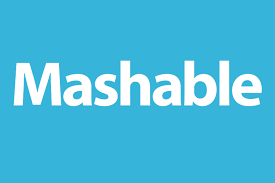You may be under the impression that executive resumes are outdated thanks to the rise of networking and social media. However, a well-crafted resume can be just as effective. In today’s business world, there aren’t many people who aren’t connected at all times. That’s why when you’re sending in your executive resume, you need to make sure it’s mobile friendly. There’s nothing more frustrating for a recruiter or hiring manager than not being able to view a resume from their mobile device. If you aren’t sure how to make your resume mobile friendly, a good executive resume writing service can help.
Recruiters Work On-The-Go, Too
Time is limited for everyone. Since you only have approximately six seconds to impress a recruiter with your resume, even the smallest mistake is magnified. A recruiter may be on a business trip, on lunch break or just away from the desk for any other reason. If they read your email with the resume attached, but can’t view the resume clearly, it could be lost in the shuffle.
Make Your Resume as Easy to Read as Possible
There’s a lot of discussion about the best executive resume format, but sometimes the best one is one that’s simply the easiest to read. You don’t have to be one of the best executive resume writers in the world to make your mobile friendly resume more accessible. Mobile devices are designed to make life simpler and more convenient. Make sure your executive resume fits those characteristics to have the greatest chance for success.
Increase Your Interview Opportunities
Many professional executive resume writers will tell you having a mobile friendly resume will increase your chances for job interviews. When you make your resume and contact information easy to view on a mobile device, the recruiter can contact you immediately, rather than having to wait until they return to the office. Hiring managers want to streamline their hiring process as much as possible, so when they have a chance to set up an interview quickly, they will do it most of the time. If you have a resume that’s difficult to read on a mobile device, your interview chances will decrease.
Having a mobile friendly executive resume is important nowadays. To ensure your resume is mobile friendly, feel free to contact us to get in touch with the best executive resume writing service.
An executive job search can be exciting and stressful all at the same time. Like any job search, it can seem like you’re on a daily roller coaster of emotions until you finally land a job. If you take some strategic steps and avoid common mistakes, you’ll be able to reduce the length of your search. Using executive resume services is a good first step to get you on the right track, but before you do that, be sure to heed some of these common mistakes executives make with their job search.
1. Failing to Target Your Search
At first, it may seem like a good strategy to cast your net far and wide. However, this method doesn’t produce great results most of the time. The top resume writing services will suggest tailoring your resume to specific companies, rather than trying to write a general one. Resume targeting is a key aspect in an executive job search, but it’s also one of the things executives fail to do.
2. Not Networking
The days of sending in a resume online and getting a call for an interview the next day are virtually over. Executive resume services suggest handing your resumes to people in person at networking events, rather than replying to an online job post. The power of networking should never be underestimated, but you would be surprised at how many executives don’t see the importance.
3. Being Unprepared
Always be prepared, whether you’re networking or doing anything related to your job search. Being prepared means cleaning up your social media profiles, enhancing your online presence, visiting with executive resume writers and more. You need to be prepared if a potential employer decides to contact you.
4. Not Changing Strategies
Just like you have to adapt to the ever-changing business world, you have to change job search strategies occasionally also. Doing the same thing over and over again can get frustrating when you continue getting similar results. Be open to changing your executive job search strategy if you aren’t getting the results you desire.
5. Spending Too Much Time or Not Enough Time
Searching for an executive job is a full time job itself. However, just like an actual job, spending too much time or too little time doing it can lead to underperforming. Find a good balance and speak with executive resume services if you find yourself hitting a rut in your search.
Sometimes executive resume writers can help you avoid mistakes in your job search before you make them. Feel free to contact us with any questions about other mistakes to be aware of.
Resumes are hard work. As one of the leading teams of
executive resume writers, we’ve witnessed this fact up close several times over and we understand. It’s tricky to know just how to market yourself and appeal to potential employers, regardless of what industry you’re in. To help make it easier, we’ve put together this list of potentially great additions to your resume that could be of interest to a recruiter!
1. Qualifications
This could be a great piece of information to list about yourself as an alternative to the “objective” section of your resume. This is a surefire way to appeal to employers because it gives them an idea of what you’re capable of right away and reveals the most important aspects of what makes you hire-able.
Depending on what the job posting says, you may want to go into more detail with this section. Consider including how long you’ve utilized this particular skill in the workforce, as well as anything else that will help you look especially qualified, such as any related professional skills.
2. Titles
When you’re listing out your prior work experience on your
executive resume bio, don’t skirt around your position there! Titles are an extremely important indicator of your status within the company and could generate further interest from a recruiter. They also give potential employers a better idea of what your responsibilities were at your previous jobs and what they can expect from you should they hire you to work for them.
3. Details and Numbers
Specificity can catch an employer’s eye, not just in the realm of job titles, but also in terms of your responsibilities and accomplishments while there. Don’t be afraid to brag a little, but be sure to stay truthful! Include precise numbers when talking about how you’ve made a difference in your previous positions. This includes percentages and other quantifiers. Recruiters will latch on to this and keep it in mind.
4. Languages
While bilingualism wasn’t necessarily as desired in the past, it is becoming increasingly important to today’s recruiters, especially as industries across the board become increasingly international. If you speak any additional languages, it may be a good idea to include them on your resume, depending on what your field is. Though it’s a small detail, it could create an important tipping point as far as whether you’re called in for an interview or not.
5. Education
Again, adding in your education depends largely on the type of job you’re applying for and, potentially, how long you’ve been out of school. Your educational history will be more important if you’re a recent graduate as opposed to a seasoned professional who earned their last degree 15 years ago. However, if the job you’re applying for wants a degree of a certain type, it may be a good idea to include your degree information if it matches, regardless of how long it’s been since you received it.
While these suggestions aren’t guaranteed to get you hired, they could serve as an eye-catching factor for an employer. Of course, to make your resume a true standout, you’ll want to turn to the
best resume writing service available. Never hesitate to
get in touch and learn the newest tips and tricks for fine-tuning your resume!
 As a senior level professional, you’ve almost certainly heard of personal branding. Implementing it into your professional life, however, is a very different story. The idea of establishing and maintaining a personal brand is very new after all, having arrived on the coat tails of the Internet and the rest of today’s technology. If you’ve spent a considerable amount of time assuming c-level personal branding isn’t worth your time, you may want to reconsider! This is a very important aspect of your professional career, for a few significant reasons.
As a senior level professional, you’ve almost certainly heard of personal branding. Implementing it into your professional life, however, is a very different story. The idea of establishing and maintaining a personal brand is very new after all, having arrived on the coat tails of the Internet and the rest of today’s technology. If you’ve spent a considerable amount of time assuming c-level personal branding isn’t worth your time, you may want to reconsider! This is a very important aspect of your professional career, for a few significant reasons.
Personal Branding Sets You Apart
While this line sounds cliché, it is very much the truth. Consider these questions:
- How do you stack up against your competitors?
- Would your degree(s) be enough to convince companies to hire you instead of someone else?
Thousands of other people hold the exact same academic achievements as you. Plus, the longer you’ve been out of school, the less your academic career matters. It’s the sad reality that many people face.
Rather than focusing on this, look back on the other accomplishments you’ve earned within your field. Think about who you are as a executive and a person. Personal branding for senior level managers involves getting to the meat of these two concepts. It involves presenting your positive qualities and expertise in a way that appeals much more readily to those in charge of hiring you.
You’ll Experience a Quality Jump with Your Job Search
Naturally, focusing on your skills and personal talents boosts your own self image. This means you will become far less likely to settle for just any position that matches your skill set. You will gradually start to approach your job search in a different way as your personal brand gains more and more attention. Once this happens, it will enable you to think about what you really want from a company and what conditions you are not willing to deal with.
As a result, you will start to push forward with your professional life and only accept those who meet your newfound standards. If the idea of constant professional growth appeals to you, then you’ll want to put together your personal brand as soon as possible.
Your Personal Brand Gains You More Benefits and Professional Success
Simply put, a personal brand boosts your chances of being hired. It creates a clear picture of your strengths and what you can offer a company, which will appeal quickly to employers. If you’re currently struggling with your job search, a personal brand may help you finally find the position you’ve been so diligently seeking in ways you could never have anticipated!

Executive resume writers can help you craft a great resume.
Everyone who has written a resume knows the difficulties involved: listing out all of your adequate experiences and education, figuring out the most efficient way to format and, most importantly, doing all of this in a way that will catch the attention of any prospective employers. This is a challenge for every job seeker and especially so for those on opposite ends of the spectrum. For people with little experience, it’s a matter of not having enough things to list. For those in executive positions, there’s often too much. If you’re reading this blog, you’re probably part of the latter group. In this blog article, we’ve compiled a list of great tips to help executive resume writers craft the best possible resume.
Put Any Academic Information Last
This is only relevant for position candidates who have also recently graduated from school. It is also worth noting if you’re going to list where you went to school, your university is the only relevant information needed. If it’s been a while since you graduated, your work experience takes much larger priority.
Give Recruiters Access to Your LinkedIn or Similar Profile
There’s a high possibility your potential employer will want to see it in the first place. We recommend taking this step to prevent any confusion that could arise if a recruiter tries to search for you on their own.
Don’t Include Footers or Headers
It’s certainly pretty, but it can easily confuse most systems used for tracking applicants. The same goes for charts and other graphic elements people use for aesthetic purposes.
Keep Things Consistent
This is especially useful for those with common full names. You may want to go by a nickname, use your middle name or some similar method to help distinguish yourself. Whatever you decide, make sure you use it across every professional social media account you have to make yourself as easy to find as possible.
Keep Images Out of Your Resume
This goes for any kind of graphic, from graphs to portraits of yourself. Much like using headers, this can be confusing for the company’s tracking system for applicants. Using pictures of yourself presents other, more unfortunate problems as well, such as hiring discrimination. You want to give yourself as fair a chance as possible.
Always Provide an “Elevator Pitch”
This is of vital importance to executive resume writers. When you create an elevator pitch, you’re telling your prospective employer how you can benefit their company, why you’re interested in working with them and about your specific skills and talents. This section should be no longer than five sentences and no shorter than three, about a 30 second-long read.
Additionally, if you need a little extra help making your resume the best it can be, hire only the best executive resume writing service. They can help you revamp your application process in multiple ways, whether through resume advice or a cover letter writing service.

In a sea of social-networking sites that are primarily useful for, well, socializing, LinkedIn is a breath of fresh air for professionals. When you are active on this social-networking site, you’re not just wasting time creating and reading pointless postings. You’re improving your marketability as a job candidate, making valuable job-seeking connections, and increasing the odds of discovering or getting your next lucrative job.
Your LinkedIn Profile is Like Your Personal Brand
If you are looking for an executive level job, it is imperative that you optimize LinkedIn profile appeal so you will generate more profile views. The more people who view your profile, the higher the odds that the right person will view it. There’s really no point even being on LinkedIn if your profile is incomplete, lacks important keywords and has a paltry network of connections.
Ever Heard of “Social Selling?”
The concept of social selling is relatively new, but it’s important if you’re trying to market yourself. Essentially, social selling involves building up a strong reputation (selling yourself) as an expert in your chosen field by being an active participant in social media (particularly LinkedIn). Every aspect of your LinkedIn profile, including your headline, photo, connections, executive bio and summary, should be crafted with care and to elicit a specific response should a potential employer view it.
How Should You Optimize Your LinkedIn Profile?
Now that you understand the importance of optimizing your LinkedIn profile, you’re probably wondering exactly how to do that. By far the smartest way to go is to partner with a skilled and experienced LinkedIn profile writing service. When you are looking for an executive position, you can’t afford to take risks with something as critical as your LinkedIn profile. Certified resume writers at a LinkedIn profile writing service know how to use keywords effectively, add rich media that will generate attention, strategically organize a skill list to appeal to hiring authorities and more.
It’s always a wise move (and one that will save you time and anxiety) to outsource things not in your wheel house to someone who specializes in them. When your car needs an oil change, you could probably muddle through and do the job yourself. But you likely opt for the smart alternative and take your car to your auto repair shop. The same holds true for writing a resume, cover letter, executive bio and LinkedIn profile. If you have a computer, you could sit down and create these documents yourself. But if you trust a pro to do the job, these important components of your job search will probably be exponentially stronger than what you could create on your own.

Building resumes that get you hired can feel like an insurmountable task. It can be difficult to determine which information is essential and what is better left unsaid. Below are some resume “don’ts”:
Objective
If you look at resume examples for lower level jobs, you will see an objective line at the top that details the goals of the individual. When it comes to executive level resumes, however, this section is unnecessary. Applying for the job indicates your goal. Instead, consider writing an executive summary that succinctly details your achievements.
Too Many Details
In the case of resumes, less is often more. You don’t need to list every employer you’ve had since your first job. Instead, focus on only the jobs that lend skills for the job in question. Consider focusing on one or two areas in which you have made the biggest impact in your career.
Personal Information
Professional executive resume writers emphasize leaving out the personal details of your life. Your resume is not the place to list your age, personal interests, relationship status, hobbies, school GPA or other details considered personal. This includes providing a photo. You want to make the first impression in person.
Your References
If you’re used to putting your references in your resume or even including the phrase, “references available upon request,” reconsider it. If the company you are interviewing with wants to talk to references, they will ask for them without prompting.
An Unprofessional Email Address
One of the best parts of a personal email address is you can let your creativity shine. However, it’s best to make sure the email address you include in the contact information on your resume is professional. Instead of using your cutesy personal email address, set up a special account for your job hunt that includes your first name, last name, initials or a combination of these.
Current Employer Information
When you’re dealing with executive-level positions, you don’t want to be contacted at work when you’re looking for a new position. For this reason, it’s best to leave off contact information related to your current job. Likewise, it’s best to forgo listing salary information on your resume. Your goal is to promote your skills, not your monetary worth.
The best executive writing services can help you re-evaluate your resume and eliminate the unnecessary information that could cost you the positions for which you’ve applied. Learning how to create resumes that get you hired will be an invaluable tool as you make your way up the corporate ladder.
If you’re looking for professional executive resume writers to help you polish your C-level resume, contact us. We can help you start from the beginning to develop an attractive, yet concise resume, including why you would be an asset to an employer. We can also evaluate your current resume and eliminate the unnecessary details causing more harm than good as you seek the ideal career path.
Ask The Experts: Cover Letter and Resume Transformation
Resume Writing

Recently, I was honored to be among industry experts discussing current trends in resumes and cover letters on a Mashable Biz Chat. Tracy Edouard, Marketing and Communication at Mashable, gives us the highlights of Mashable’s #BizChats Twitter chat on how to transform your resume and cover letter for the better and you can see different professional perspectives on these questions:
- Is it important to have both a cover letter and resume when submitting job applications? Why or why not?
- How can someone truly make their resume stand out from the competition?
- What features are important to showcase on someone’s resume? (GPA, school, skills, etc.)
- What are employers and recruiters looking for in resumes and cover letters?
- What are the biggest cover-letter mistakes professionals are making?
- How important is design when it comes to creating a resume and cover letter?
- What are the top resources available for resume and cover letter support?
- What final tips do you have about creating great resumes and cover letters?
These are all good questions. And the input from the various professionals involved is valuable without a doubt. But do you know what the most striking thing about this Twitter chat is?
There Isn’t An Excuse For An Ineffective Resume & Cover Letter
We have the ability to pull experts from all over the place for a chance to pick their brains. Every expert tweeting is linked to a site with a wealth of information, and there is no reason a job seeker with access to an expert can’t get expert advice. Much of that advice is free, too!
The overwhelming consensus is that you can have an effective resume and cover letter by putting the right effort into it. Sometimes that effort involves doing the research on current trends and revamping it yourself, sometimes it takes a resume critique from a professional to help you see what needs to be done, and sometimes your best investment is in a professional resume service.
The help you need to have a powerful resume and cover letter is out there and you can find it easily, along with a wealth of career advice from experts in your field.








